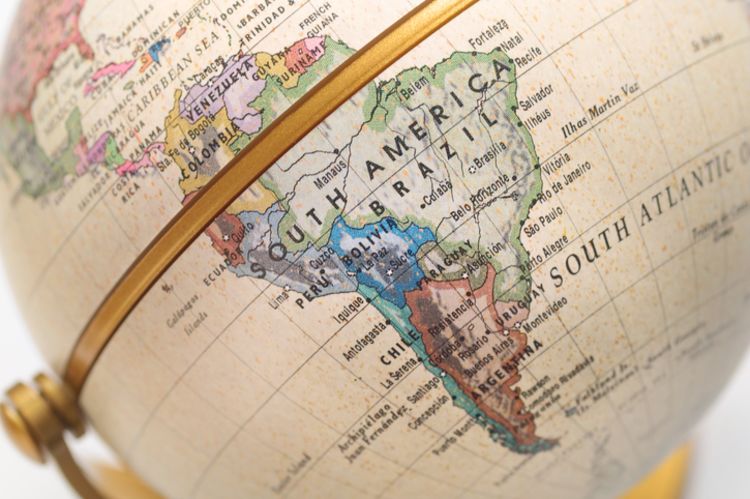Health technology assessment in Latin America - advancing together
Case study

NICE International supports countries to improve their own nation’s health and wellbeing. It does this by sharing best practice and expertise from NICE, helping to drive improvements in evidence-based decision making. In this case study, we explore our collaboration with 8 countries across Latin America and the Caribbean. This project focuses on sharing knowledge about challenging aspects of health technology assessment.

“Our collaboration with Latin America is a rewarding, thought-provoking and stimulating exchange. We have compared our different approaches to similar problems. This includes patient access to promising yet uncertain high-cost drugs, medicines for rare diseases and engaging with system partners.”
Pilar Pinilla-Dominguez, associate director, NICE International
“It was an incredible experience - talking with the NICE technical team and with professors from the Centre for Health Economics at the University of York. Without a doubt, it provided us with significant added value for the future construction of methodologies on health technology assessments in our country."
Oscar Espinoza, associated researcher, National Agency for Health Technology Assessment, Colombia
"Our exchange with NICE is very enriching. Hearing from NICE helps us to better understand the challenges that are similar in Brazil and in the UK and learn from NICE's experience.”
Luciene Fontes Schluckebier Bonan, general coordinator of strategic management in healthcare technologies, National Commission for the Incorporation of Technologies in the Unified Health System, Brazil.
Our partners
NICE International began collaborating with Latin America in 2019. The team is currently working with key agencies across the region including:
- National Commission for the Incorporation of Technologies in the Unified Health System (CONITEC) - a health technology assessment unit within the Brazilian Ministry of Health
- National Agency for Health Technology Assessment (IETS) in Colombia
- Health Technology Assessment Agency (AETS) in Uruguay
- Department of Health Technology Assessment and Evidence Based Health (ETESA) within the Ministry of Health in Chile.
The British Embassy and the UK Department for International Trade have been supporting NICE International with this work.

A collaborative approach
NICE International’s work in Latin America and the Caribbean spans 8 countries over 4 years. Working with colleagues from across NICE, they’ve been delivering tailored support through their knowledge transfer service and international consultancy service.
Work began in 2019 with a series of introductory health technology assessment workshops in Brazil, Colombia, Uruguay, Mexico, the Dominican Republic, Panama and Costa Rica.
The team followed this up with 8 sessions focused on specific areas of health technology assessment and a series of virtual masterclasses. Topics included:
- NICE’s response to the COVID-19 pandemic
- digital health technologies
- commercial and managed access agreements
- implementation support tools.

Honing in
This valuable work led to a series of advisory sessions with government agencies and officials. These honed in on particular areas of development relevant to the country concerned.
|
Country |
Focus |
|---|---|
|
Brazil |
Managed access agreements, analysing and synthesising qualitative evidence, involving stakeholders in guidance development. |
|
Colombia |
Development of an EQ-5D-5L valuation set (a self-report survey that measures quality of life across 5 domains). |
|
Uruguay |
The principles of health technology assessment, how to resource an appraisal programme, topic selection. |
|
Chile |
Clinical guideline dissemination, implementation strategies. |
Most recently, in August 2022, NICE International, along with colleagues from the Centre for Health Economics at the University of York, visited Brazil. There, they met government agencies and officials from all 4 countries to discuss:
- Challenges in high-cost drug evaluation with a focus on oncology and rare diseases.
- Monitoring and updating recommendations (including data collection as part of managed access agreements).
- Strategies for engaging with industry, patient organisations and clinicians.

Achievements
With on-going support from NICE International:
- Brazil's health technology assessment unit has moved to a multiple committee structure and broadened its committee membership. The unit now has separate committees for the evaluation of drugs, the evaluation of non-pharmaceutical technologies, and the development of clinical guidelines. Committee membership has expanded to include medical specialists (representing the Brazilian Medical Association), and methodologists (representing hospital-based health technology assessment units from the Brazilian health technology assessment network). Lay members are also able to participate by attending the meetings. Recently, the unit held a public consultation on introducing a cost-effectiveness threshold into its work.
- Colombia's National Agency for Health Technology Assessment has developed its approach to public involvement. The agency has launched a patient involvement manual and developed engagement strategies for public involvement in health technology assessment.
- Uruguay has established its own independent health technology assessment agency. The agency has developed its initial organisational structure and its processes and methods for health technology assessment. It is starting to implement its processes in response to requests from the national health system.
- The Department of Health Technology Assessment and Evidence Based Health in Chile has developed their implementation support offer. The department has incorporated learnings into their implementation strategy and tools. It is also considering the creation of an independent health technology assessment agency in the country. The relationship between Chile and the UK has been strengthened and the UK has become an important reference for Chile in relation to health technology assessment.”
